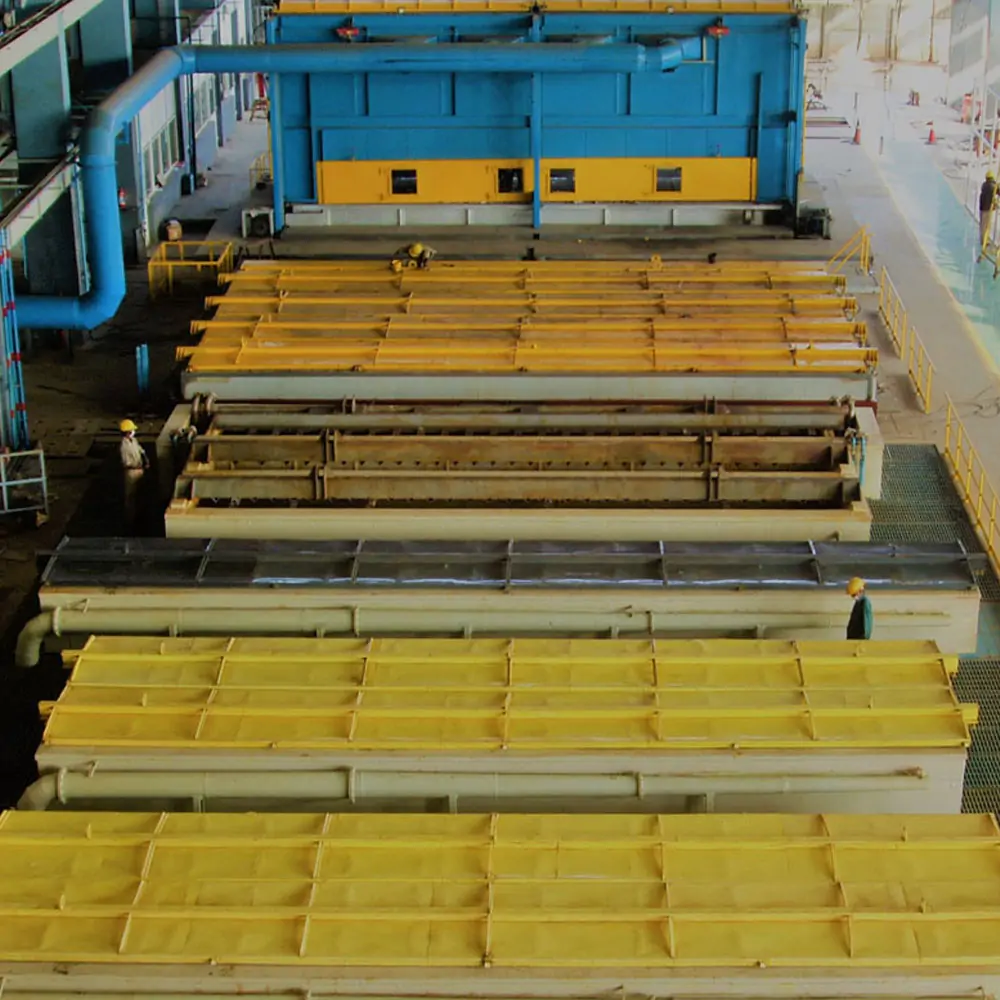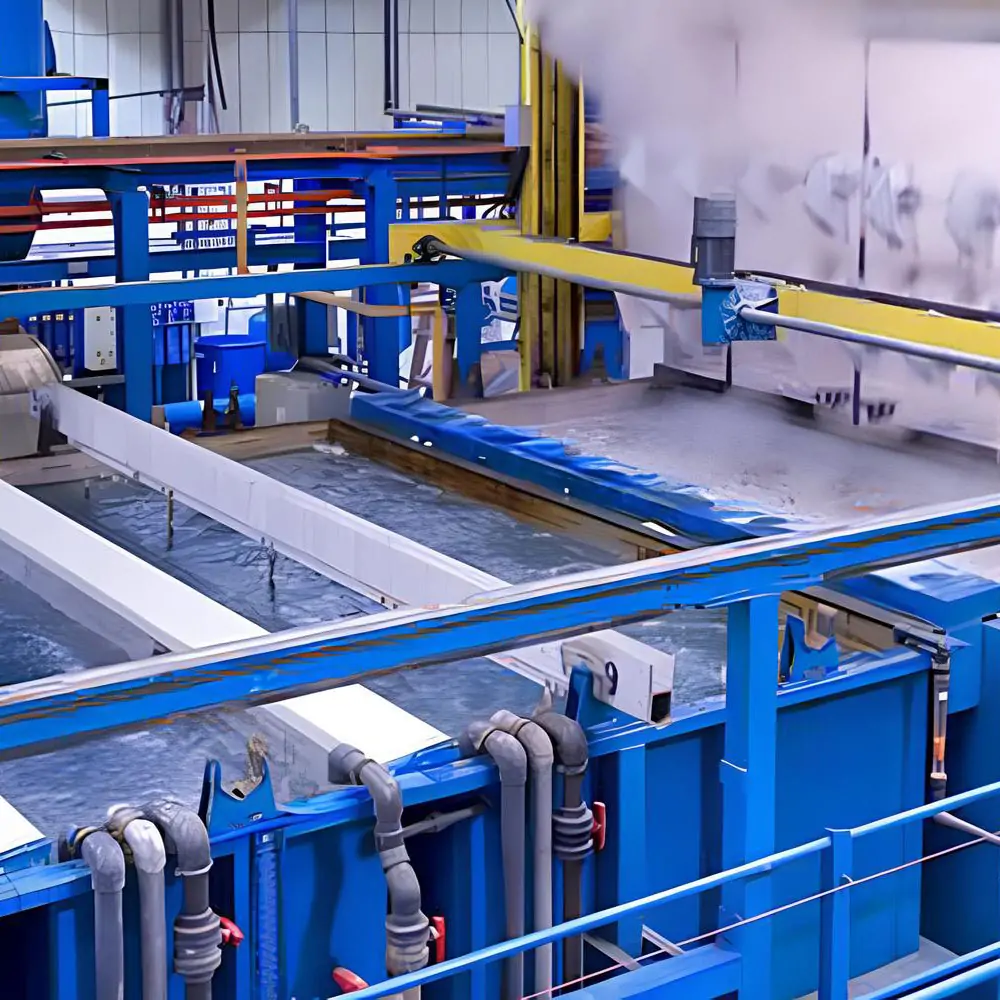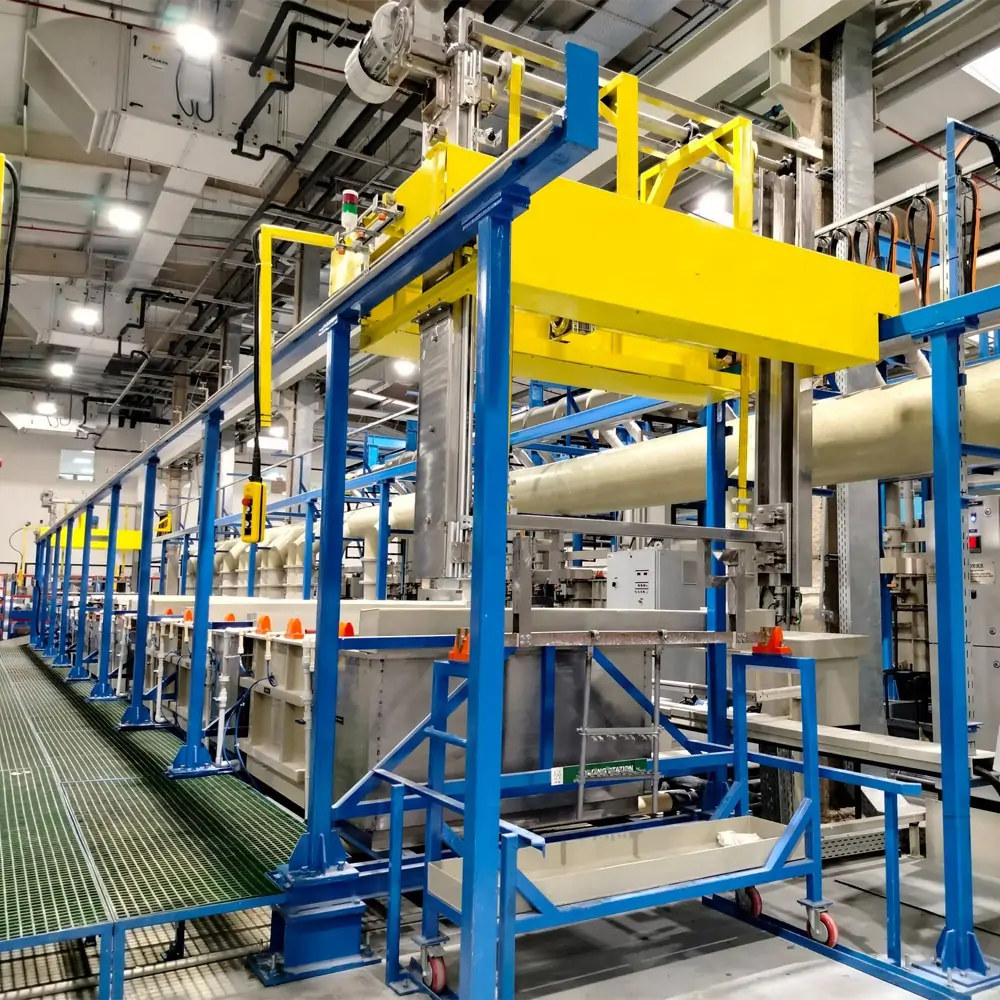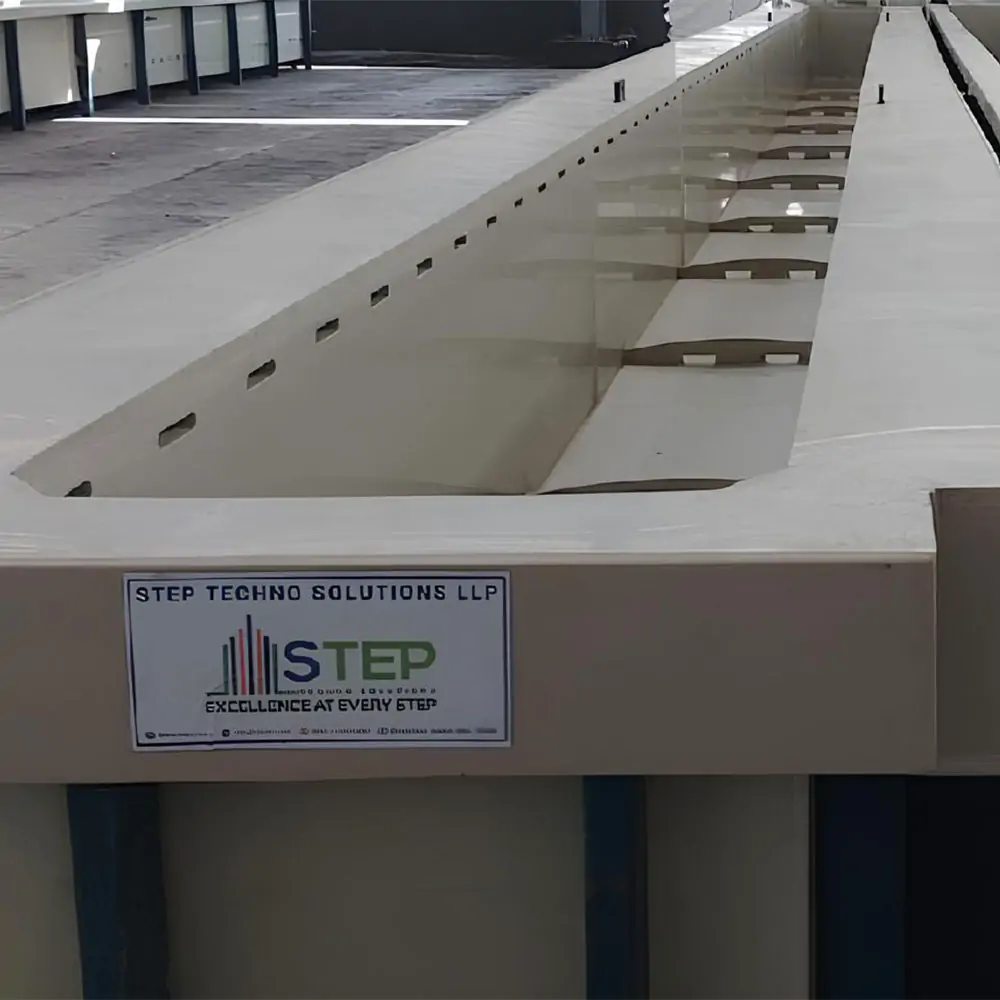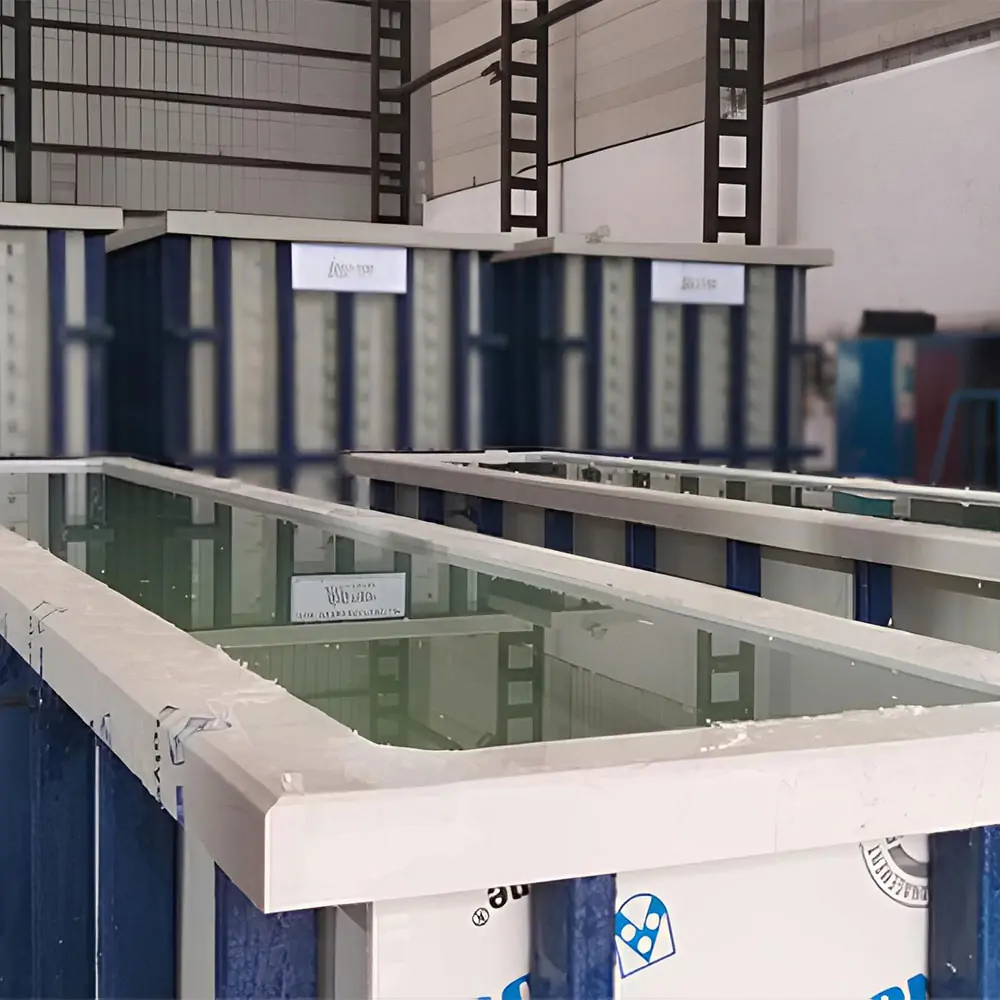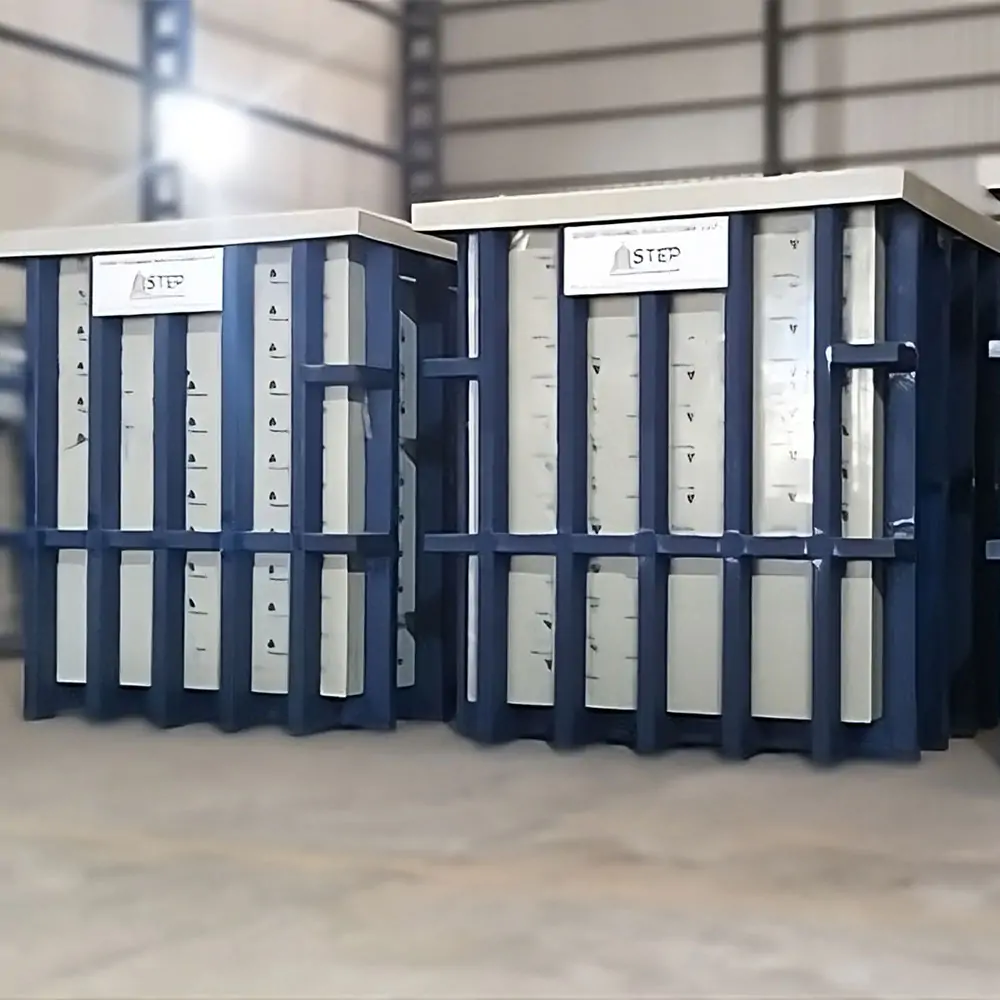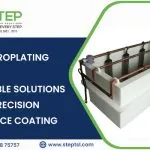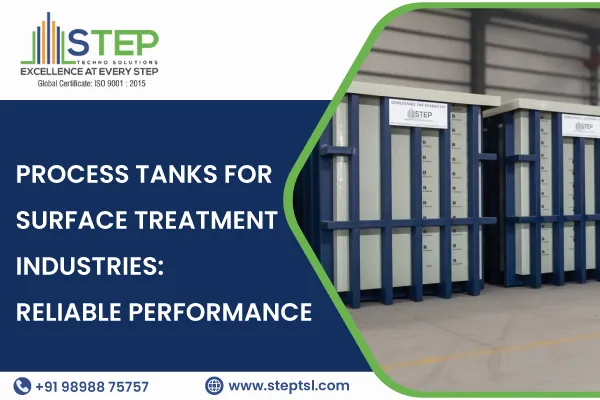In surface treatment industries, reliable equipment is the foundation of consistent results. Process tanks are among the most critical components, enabling treatments like electroplating, anodizing, phosphating, and chemical etching. These tanks are engineered to handle aggressive chemicals, maintain precise temperatures, and ensure operational stability. Their durability directly impacts product quality, ensuring corrosion resistance, improved appearance, and enhanced material strength across industries such as automotive, aerospace, and electronics. Built from advanced materials like polypropylene, PVC, FRP, or stainless steel, process tanks offer long service life and safety. By maintaining process efficiency and chemical balance, they guarantee consistent finishes, reduce downtime, and support sustainable operations for demanding industrial applications.
Importance of Process Tanks in Surface Treatment Industries
Process tanks are essential for ensuring precision, efficiency, and safety during surface treatment operations. They hold various chemical solutions used for cleaning, coating, and treating materials. The reliability of these tanks directly impacts product quality and production consistency. Well-designed tanks help industries minimize contamination, maintain uniform chemical reactions, and extend the lifespan of treatment systems, leading to cost savings and operational excellence. A process tank is a specially engineered container used to store and process chemical solutions in surface treatment operations. These tanks handle multiple functions — from cleaning and degreasing to plating and rinsing — ensuring each stage of surface preparation meets industrial standards.
Types of Process Tanks Used in Surface Treatment
- Pickling Tanks: Used for removing rust, scale, and oxide layers before coating.
- Rinse Tanks: Contain clean water to wash residues after treatment.
- Anodizing Tanks: Used for forming oxide coatings on aluminum and other metals.
- Plating Tanks: Essential for depositing thin metal layers onto substrates.
- Etching Tanks: Used for precision removal or texturing of metal surfaces.
Key Components of Process Tanks
Process tanks consist of several critical components, including heating elements, filtration systems, overflow weirs, exhaust ducts, and agitation mechanisms. Each part ensures optimal performance by maintaining temperature, cleanliness, and chemical balance within the tank.
Role of Process Tanks in Surface Treatment
- Chemical Processing and Treatment Applications: Process tanks handle a wide range of chemical solutions that enable various finishing techniques. These include nickel plating, zinc coating, chromating, and other specialized treatments that improve corrosion resistance and aesthetic appeal.
- Importance of Tank Design in Treatment Efficiency: Tank design plays a vital role in achieving uniform coating thickness and surface finish. Proper circulation, agitation, and temperature control enhance chemical efficiency, reduce waste, and ensure repeatable, high-quality results.
- Impact on Product Quality and Consistency: A reliable process tank ensures that every component processed has consistent surface characteristics. Stable tank operations reduce defects such as uneven coatings, blistering, or discoloration, improving both the appearance and functional performance of the treated products.
Factors Influencing Reliable Performance
Material Selection for Process Tanks
Selecting the right material ensures the tank’s longevity and chemical resistance. Common materials include:
- Polypropylene (PP): Lightweight, corrosion-resistant, and ideal for acidic solutions.
- PVC (Polyvinyl Chloride): Suitable for low-temperature processes and alkaline chemicals.
- FRP (Fiberglass Reinforced Plastic): Provides exceptional strength and chemical resistance.
- Stainless Steel: Ideal for high-temperature and heavy-duty applications.
Design Considerations for Optimal Performance
A well-engineered tank design accounts for solution capacity, material compatibility, temperature range, and ease of maintenance. Features like insulation, proper drainage, and chemical-resistant coatings further enhance durability and performance.
Maintenance Practices to Ensure Reliability
Routine maintenance is key to extending tank life. Regular inspections for leaks, corrosion, or sediment buildup, along with proper cleaning and filter replacement, help ensure consistent process performance.
Innovations in Process Tank Technology
- Advances in Materials and Coatings: Modern process tanks now use advanced composite materials and fluoropolymer linings to increase resistance to aggressive chemicals. These innovations extend service life while reducing contamination risks.
- Automation and Control Systems: Smart process tanks equipped with temperature sensors, pH meters, and automated dosing systems ensure precision control. Digital monitoring enables real-time tracking of parameters, improving consistency and reducing manual intervention.
- Eco-friendly and Sustainable Practices: Environmental sustainability is becoming a priority. Tanks designed for reduced water and energy consumption, along with recyclable materials, help industries lower their ecological footprint without compromising performance.
Challenges in Process Tank Operations
- Common Issues Faced in Surface Treatment: Industries often encounter challenges such as chemical degradation, corrosion, thermal stress, or leakage. Poor maintenance or incompatible tank materials can also lead to process inefficiencies and safety risks.
- Solutions and Best Practices for Overcoming Challenges: Implementing preventive maintenance schedules, using compatible materials, and employing automated monitoring systems can minimize operational issues. Regular staff training ensures safety and efficient tank handling.
- Importance of Regular Monitoring and Assessment: Continuous assessment of tank conditions helps detect potential problems early. Monitoring pH, temperature, and solution levels ensures optimal performance and reduces unplanned downtime.
Regulatory Compliance and Standards
- Overview of Industry Regulations Affecting Process Tanks: Surface treatment industries must comply with strict safety and environmental regulations. Tanks must meet standards for chemical containment, leakage prevention, and waste management to ensure worker safety and regulatory compliance.
- Importance of Compliance for Safety and Performance: Compliance not only ensures safety but also enhances product reliability and market credibility. Certified tanks meet the highest standards for chemical resistance, design integrity, and operational efficiency.
- Certifications and Standards to Consider: Reputable process tanks comply with international standards such as ISO 9001, ASTM, and OSHA regulations. These certifications reflect a commitment to quality, environmental responsibility, and performance excellence.
Why Choose STEP® Techno Solutions LLP?
When it comes to process tanks for surface treatment industries, choosing the right partner ensures long-lasting performance, safety, and efficiency. STEP® Techno Solutions LLP stands as the leading process tanks manufacturer in India, delivering world-class solutions tailored to diverse industrial needs. With expertise spanning decades, we specialize in designing and fabricating chemical processing tanks that guarantee durability, corrosion resistance, and thermal stability. Our tanks are manufactured using high-quality materials such as PP, PVC, FRP, and HDPE, making them ideal for handling aggressive chemicals and high-temperature applications. Each tank undergoes stringent quality checks to ensure consistent performance and extended service life, even in the most demanding environments. Beyond tanks, we also manufacture complete plants, including Hot Dip Galvanizing Plants, Anodizing Plants, Electroplating Plants, Pickling Plants, Powder Coating Plants, and Phosphating Plants, serving multiple industries with turnkey solutions.
We offer end-to-end support — from initial consultation, design customization, and precision engineering to installation and after-sales maintenance. This comprehensive approach ensures seamless integration into your operations while minimizing downtime and maximizing productivity. Our focus on innovation and sustainability means adopting eco-friendly designs, automation systems, and modern safety practices to meet evolving industry standards. Trusted across sectors like automotive, aerospace, electronics, and heavy industries, STEP® Techno Solutions LLP provides unmatched reliability in Process Tanks for Surface Treatment Industries in India. By combining innovation, quality, and customer satisfaction, we help industries achieve superior surface finishing and operational excellence. Contact STEP® Techno Solutions LLP today to explore customized Process Tanks for Surface Treatment Industries designed to enhance performance and ensure long-term value for your business.
Conclusion
Process tanks are indispensable to surface treatment industries, ensuring safe, efficient, and consistent chemical processing. A high-quality tank protects both the product and the process, enhancing operational efficiency and reducing environmental impact. Investing in advanced process tanks is a strategic move for industries seeking to enhance production quality, minimize maintenance costs, and achieve sustainability objectives.
To optimize your surface treatment operations with durable and reliable process tanks, consult the experts at STEP® Techno Solutions LLP. Contact us today for customized solutions designed to meet your exact process needs. Contact Us: +91 98988 75757, info@steptsl.com
FAQ
1. What are process tanks used for in surface treatment industries?
Process tanks are used to store and manage chemical solutions required for plating, anodizing, cleaning, and etching metal surfaces. They ensure controlled chemical reactions, consistent coating quality, and efficient treatment of industrial components.
2. What materials are commonly used to manufacture process tanks?
Process tanks are typically made from durable, corrosion-resistant materials such as polypropylene (PP), polyvinyl chloride (PVC), fiberglass-reinforced plastic (FRP), and stainless steel, depending on chemical compatibility and operational requirements.
3. How do process tanks improve product quality?
High-quality process tanks maintain stable temperature, chemical balance, and solution purity. This consistency ensures uniform coating, enhanced surface finish, and long-lasting durability of treated metal or plastic components.
4. What industries benefit most from using process tanks?
Process tanks are widely used in automotive, aerospace, electronics, chemical processing, and surface finishing industries where corrosion resistance, metal coating, and precision treatment are critical for product performance.
5. How do I choose the right process tank for my application?
Selection depends on factors like chemical type, temperature range, tank size, and operational volume. Consulting with an expert ensures the right material, design, and configuration for reliable long-term performance.
6. How can I maintain my process tanks effectively?
Routine inspections, chemical cleaning, pH monitoring, and corrosion checks help maintain process tank efficiency. Regular maintenance prevents leaks, contamination, and premature wear, ensuring consistent treatment results.
7. What are the latest innovations in process tank technology?
Modern process tanks feature automation, digital sensors for temperature and pH control, advanced coatings for chemical resistance, and eco-friendly designs that minimize waste and energy consumption.
8. What are common challenges in process tank operations?
Typical issues include chemical corrosion, leakage, scaling, and uneven temperature control. Regular inspections, preventive maintenance, and use of compatible materials help overcome these operational challenges effectively.
9. Are process tanks safe to use in chemical industries?
Yes. Process tanks are designed with reinforced structures, leak-proof joints, and corrosion-resistant materials to ensure safe handling of hazardous chemicals during industrial surface treatment operations.
10. Why are STEP® Techno Solutions LLP process tanks reliable?
STEP® Techno Solutions LLP designs high-performance process tanks using advanced materials, precise engineering, and quality control. Their tanks deliver durability, safety, and consistent performance for diverse industrial surface treatment applications.

